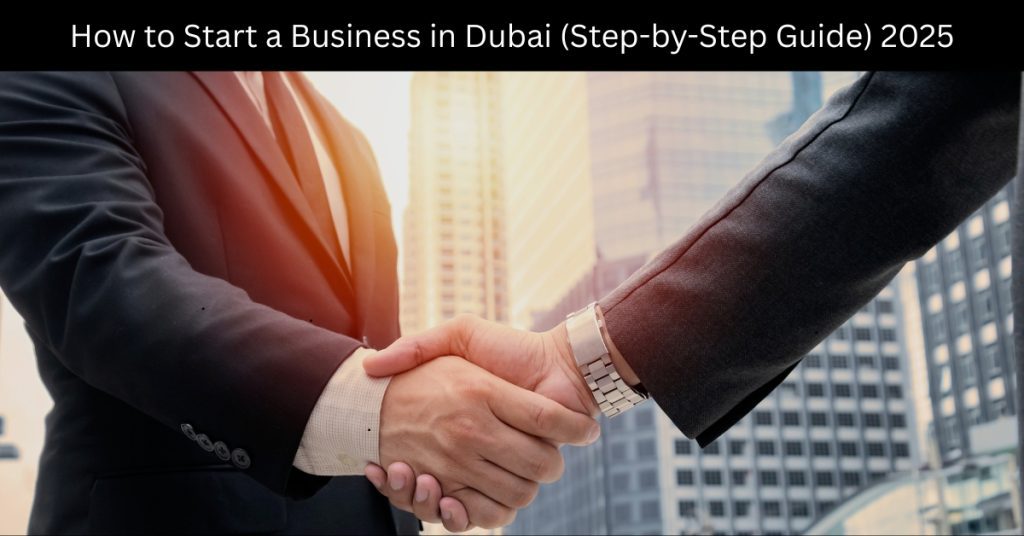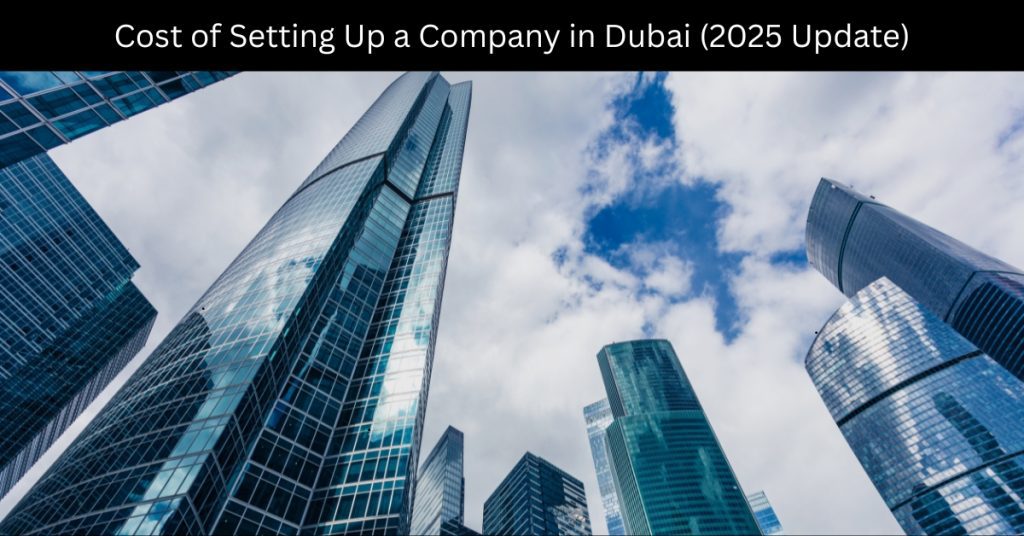The United Arab Emirates has established itself as a global business hub through its innovative free zone system, offering entrepreneurs and international companies unparalleled opportunities to establish and grow their businesses. With over 45 active free zones across the seven emirates, choosing the right free zone for your specific business type is crucial for long-term success.
Free zones in the UAE provide numerous advantages including 100% foreign ownership, tax exemptions, simplified business setup procedures, and access to world-class infrastructure. However, each free zone has been strategically designed to cater to specific industries and business activities, making it essential to understand which zone aligns best with your business objectives.
Key Takeaway!
| Free Zone | Best For | Key Advantages | Setup Timeline | Approx. Costs (AED) |
|---|---|---|---|---|
| Dubai Internet City (DIC) | IT, Fintech, E-commerce | Tech ecosystem, talent access | 7–10 days | 15,000 – 25,000 |
| JAFZA | Manufacturing, Logistics | Port access, industrial facilities | 10–15 days | 20,000 – 50,000 |
| DMCC | Trading, Commodities | Gold & diamond market access, trade finance | 5–7 days | 12,000 – 30,000 |
| DIFC | Financial Services | Global regulatory standards, market access | 10–14 days | 25,000 – 75,000 |
| SAIF Zone | Light Manufacturing, Trading | Cost-effective, airport proximity | 7–10 days | 8,000 – 20,000 |
| DHCC | Healthcare & Pharma | Specialized healthcare regulations, top facilities | 14–21 days | 20,000 – 40,000 |
| Dubai Media City (DMC) | Media, Content Creation | Creative infrastructure, regional media market access | 7–10 days | 15,000 – 30,000 |
| ADGM | Fintech, Digital Innovation | Common law, AI/blockchain-friendly regulations | 10–14 days | 20,000 – 50,000 |
Understanding UAE Free Zones: The Foundation of Business Success
UAE free zones are specially designated economic areas that operate under different regulations than the mainland UAE business environment. These zones were created to attract foreign investment, promote economic diversification, and position the UAE as a regional business gateway.
The concept of free zones in the UAE dates back to the 1980s with the establishment of Jebel Ali Free Zone (JAFZA), which has since become one of the world’s largest and most successful free zones. Today, these zones contribute significantly to the UAE’s GDP and employ hundreds of thousands of people across various sectors.
1. Key Benefits of UAE Free Zones
- 100% Foreign Ownership: Unlike mainland UAE businesses that typically require local sponsors, free zones allow complete foreign ownership of companies.
- Tax Advantages: Most free zones offer corporate tax exemptions for 15-50 years, with no personal income tax and minimal customs duties.
- Simplified Setup Process: Streamlined registration procedures, often completed within days rather than weeks or months.
- World-Class Infrastructure: State-of-the-art facilities, advanced telecommunications, and proximity to major ports and airports.
- Strategic Location: Access to markets across the Middle East, Africa, and Asia, with Dubai and Abu Dhabi serving as major international hubs.

Technology and Innovation Free Zones
1. Dubai Internet City (DIC)
Dubai Internet City stands as the Middle East’s premier technology hub, housing over 1,600 companies ranging from startups to multinational corporations. Established in 1999, DIC has become synonymous with digital innovation and technological advancement in the region.
Best For: IT services, software development, fintech companies, digital marketing agencies, and e-commerce businesses.
Key Advantages:
- Proximity to Dubai’s financial district
- Advanced telecommunications infrastructure
- Access to a skilled talent pool
- Strong government support for innovation
Notable Companies: Microsoft, Oracle, IBM, Google, and numerous successful startups have chosen DIC as their regional headquarters.
2. Abu Dhabi Global Market (ADGM)
ADGM represents Abu Dhabi’s vision to become a leading international financial center. This free zone combines financial services with cutting-edge technology, creating an ecosystem that supports both traditional finance and emerging fintech solutions.
Best For: Financial technology companies, digital banks, cryptocurrency businesses, and financial services firms.
Regulatory Framework: ADGM operates under English common law with its own regulatory authority, providing familiar legal structures for international businesses.
Innovation Focus: The zone actively promotes blockchain technology, artificial intelligence, and digital banking solutions through various initiatives and partnerships.

Manufacturing and Industrial Free Zones
1. Jebel Ali Free Zone (JAFZA)
As the largest and oldest free zone in the UAE, JAFZA has established itself as a global manufacturing and logistics hub. Spanning over 57 square kilometers, it offers comprehensive facilities for heavy industry, manufacturing, and large-scale operations.
Best For: Manufacturing companies, heavy industry, automotive businesses, and large-scale logistics operations.
Infrastructure Highlights:
- Direct access to Jebel Ali Port, one of the world’s largest container ports
- Extensive warehouse and manufacturing facilities
- Dedicated industrial areas with specialized utilities
- Comprehensive logistics and supply chain solutions
Success Stories: Over 7,000 companies from 100+ countries operate within JAFZA, contributing significantly to the UAE’s manufacturing sector.
2. Sharjah Airport International Free Zone (SAIF)
SAIF Zone focuses on light manufacturing, trading, and service industries. Its strategic location near Sharjah International Airport makes it ideal for businesses requiring efficient air cargo connectivity.
Best For: Light manufacturing, electronics assembly, textile production, and trading companies.
Cost Advantages: Generally offers more competitive pricing compared to Dubai-based free zones while maintaining high-quality infrastructure and services.

Trading and Logistics Free Zones
1. Dubai Multi Commodities Centre (DMCC)
DMCC has emerged as the world’s flagship free zone for commodities trade, particularly in precious metals, diamonds, and energy products. The zone provides specialized infrastructure and services tailored to commodity trading businesses.
Best For: Precious metals trading, diamond businesses, commodity trading, and related financial services.
Unique Features:
- Largest precious metals refining capacity in the world
- Specialized vaults and secure storage facilities
- Direct access to international commodity markets
- Comprehensive trade finance solutions
Market Position: DMCC consistently ranks among the top global trading hubs for gold and diamonds, with thousands of companies conducting billions of dollars in trade annually.
2. Hamriyah Free Zone
Located in Sharjah, Hamriyah Free Zone offers excellent facilities for trading and light industrial activities. Its strategic location provides easy access to major transportation networks while offering competitive business setup costs.
Best For: Trading companies, import/export businesses, light manufacturing, and distribution centers.
Advantages:
- Competitive licensing fees and operational costs
- Flexible office and warehouse solutions
- Simplified customs procedures
- Strong connectivity to regional and international markets

Healthcare and Life Sciences Free Zones
1. Dubai Healthcare City (DHCC)
Dubai Healthcare City represents the region’s first dedicated healthcare free zone, designed to attract medical professionals, pharmaceutical companies, and healthcare service providers.
- Best For: Medical practices, pharmaceutical companies, medical device manufacturers, and healthcare service providers.
- Regulatory Environment: Operates under international healthcare standards with specialized regulatory frameworks for medical practices and pharmaceutical operations.
- Facilities: State-of-the-art medical facilities, research centers, and specialized infrastructure for healthcare businesses.
2. Abu Dhabi Global Market Healthcare Hub
This emerging healthcare cluster within ADGM focuses on innovative healthcare solutions, medical technology, and healthcare financing.
- Best For: Healthcare technology companies, medical startups, telemedicine services, and healthcare investment funds.
- Innovation Focus: Emphasizes digital health solutions, medical AI, and innovative healthcare delivery models.
Media and Creative Industries Free Zones
3. Dubai Media City (DMC)
Dubai Media City serves as the region’s media and communications hub, housing broadcasting companies, publishing houses, advertising agencies, and digital media companies.
- Best For: Media production companies, advertising agencies, broadcasting firms, and creative digital agencies.
- Infrastructure: Professional studios, post-production facilities, and specialized equipment for media production.
- Ecosystem: Benefits from proximity to other creative zones and access to regional media markets.
4. twofour54 Abu Dhabi
This media free zone in Abu Dhabi focuses on Arabic content creation and media production, offering unique opportunities for companies targeting regional Arabic-speaking markets.
Best For: Arabic content creators, film production companies, and media businesses targeting regional markets.
Government Support: Strong backing from Abu Dhabi government with incentives for local content creation.

Financial Services Free Zones
1. Dubai International Financial Centre (DIFC)
DIFC stands as one of the world’s leading financial centers, offering a comprehensive ecosystem for financial services companies operating in the Middle East, Africa, and South Asia (MEASA) region.
- Best For: Banking institutions, insurance companies, asset management firms, and financial service providers.
- Regulatory Excellence: Operates under its own regulatory framework based on international best practices, with dual regulatory authorities overseeing different aspects of financial services.
- Market Access: Provides a gateway to markets spanning 72 countries with a combined GDP of over $7 trillion.
Abu Dhabi Global Market (ADGM) Financial Services
ADGM’s financial services offering complements its technology focus, creating a comprehensive ecosystem for modern financial services.
- Best For: Traditional financial services, Islamic finance, wealth management, and financial technology integration.
- Regulatory Innovation: Pioneering regulatory approaches for new financial technologies while maintaining robust oversight.

Comparison Table: Top UAE Free Zones by Business Type
| Free Zone | Best For | Key Advantages | Setup Timeline | Approximate Costs (AED) |
|---|---|---|---|---|
| Dubai Internet City | Technology & IT | Tech ecosystem, talent pool | 7-10 days | 15,000 – 25,000 |
| JAFZA | Manufacturing & Logistics | Port access, large facilities | 10-15 days | 20,000 – 50,000 |
| DMCC | Trading & Commodities | Gold/diamond expertise | 5-7 days | 12,000 – 30,000 |
| DIFC | Financial Services | Regulatory excellence | 10-14 days | 25,000 – 75,000 |
| Dubai Healthcare City | Healthcare | Medical expertise | 14-21 days | 20,000 – 40,000 |
| SAIF Zone | Light Manufacturing | Cost-effective setup | 7-10 days | 8,000 – 20,000 |
| Dubai Media City | Media & Creative | Creative ecosystem | 7-10 days | 15,000 – 30,000 |
| ADGM | Fintech & Innovation | Regulatory innovation | 10-14 days | 20,000 – 50,000 |
Choosing the Right Free Zone: Strategic Considerations
1. Business Activity Alignment
The most critical factor in selecting a free zone is ensuring your business activities align with the zone’s permitted activities and strategic focus. Each free zone has specific license categories and permitted activities, making it essential to verify compatibility before making a decision.
2. Cost Analysis
While setup costs are important, consider the total cost of ownership including annual renewals, office space, visa costs, and operational expenses. Some zones may have higher initial costs but offer better long-term value through superior infrastructure and services.
3. Market Access Requirements
Consider your target markets and customer base. Some free zones offer better access to specific regions or industries. For example, JAFZA provides excellent access to African and Asian markets through its port facilities, while DIFC offers superior access to regional financial markets.
4. Regulatory Environment
Different free zones operate under varying regulatory frameworks. Financial services companies may prefer DIFC’s established regulatory environment, while technology companies might benefit from ADGM’s innovative regulatory approach.
5. Growth and Scalability
Evaluate each zone’s capacity to support your business growth. Consider factors such as availability of larger facilities, expansion opportunities, and access to additional services as your business scales.

Future Trends and Developments
1. Sustainable Business Practices
UAE free zones are increasingly focusing on sustainability and environmental responsibility. New initiatives include green building standards, waste reduction programs, and incentives for environmentally friendly businesses.
2. Digital Transformation
The integration of digital technologies in free zone operations continues to accelerate, with blockchain-based documentation, AI-powered services, and digital-first business processes becoming standard.
3. Sector Specialization
Free zones are becoming more specialized, developing deep expertise in specific sectors. This trend allows for more targeted services and better ecosystem development within each zone.
4. Regional Integration
Enhanced connectivity between free zones and improved integration with regional markets continue to strengthen the UAE’s position as a business hub.
Making Your Decision: A Strategic Approach
Selecting the right free zone requires careful consideration of multiple factors beyond just cost and convenience. Successful businesses often spend significant time researching and evaluating options, sometimes visiting multiple zones before making their final decision.
- Research Phase: Thoroughly investigate each potential zone’s offerings, speak with existing businesses, and understand the complete ecosystem.
- Professional Consultation: Engage with business setup consultants who have experience across multiple free zones and can provide objective comparisons.
- Visit and Network: Physically visit shortlisted zones, attend networking events, and connect with other businesses in your industry.
- Future-Proof Your Choice: Consider not just current needs but also future expansion plans and changing business requirements.
The UAE’s free zone system continues to evolve, offering increasingly sophisticated solutions for businesses across all sectors. By understanding the unique strengths of each zone and aligning them with your specific business needs, you can make an informed decision that supports both immediate operations and long-term growth objectives.
Whether you’re launching a technology startup, establishing a manufacturing operation, or creating a regional headquarters for financial services, the UAE’s diverse free zone ecosystem provides options that can accommodate virtually any business model while offering the advantages of operating in one of the world’s most dynamic economies.
❓FAQs
1. Which is the cheapest free zone in the UAE to start a business?
The Sharjah Airport International Free Zone (SAIF) is among the most cost-effective options, with setup packages starting from AED 8,000. It’s ideal for light manufacturing, trading, and services.
2. Can I own 100% of my company in a UAE free zone?
Yes, free zones in the UAE allow 100% foreign ownership without needing a local sponsor. This is one of the biggest advantages of setting up in a free zone.
3. Which free zone is best for a tech startup in the UAE?
Dubai Internet City (DIC) is the top choice for tech startups. It offers a strong ecosystem for IT, fintech, software, and digital businesses with access to talent and infrastructure.
4. How long does it take to set up a business in a UAE free zone?
Business setup can be completed in as little as 5 to 15 days, depending on the free zone. DMCC and SAIF are among the fastest, while healthcare zones may take slightly longer due to regulations.



